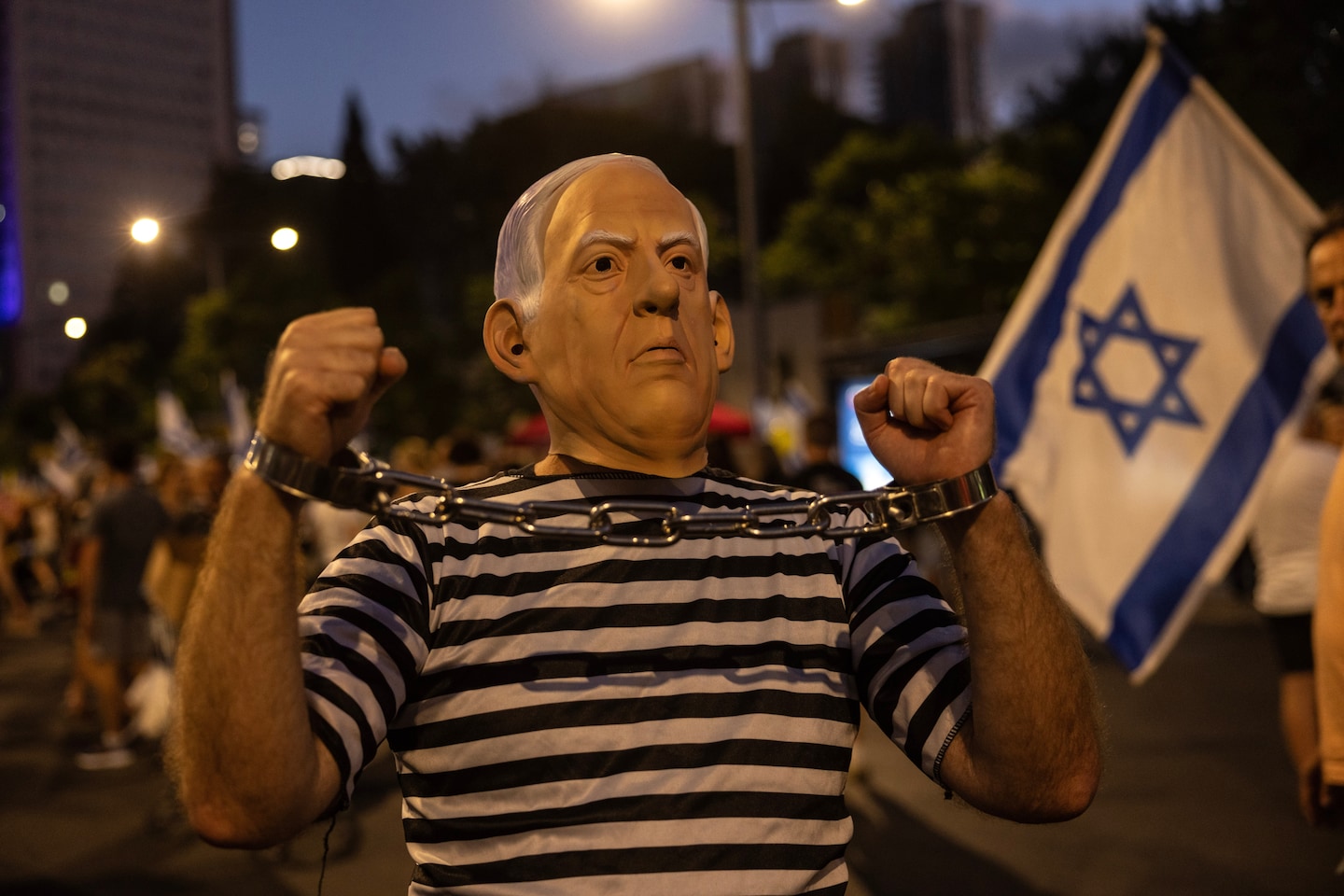Israeli Prime Minister Benjamin Netanyahu injected new uncertainty into cease-fire negotiations late Sunday, insisting that Israel should be able to resume fighting as part of any deal accepted by negotiators.
Netanyahu stipulated that “any deal will allow Israel to resume fighting until all of the objectives of the war have been achieved.” A statement issued by his office suggested that the prime minister would be unwilling to fully commit to a permanent cease-fire until the complete elimination of Hamas in Gaza — something he has repeatedly described as a key aim of the war, alongside the release of the hostages and the ensuring of Israel’s security.
Netanyahu’s office also said that any deal would need to prevent the smuggling of weapons from Egypt into the Gaza and “maximize the number of living hostages” released by Hamas — rather than the return of all the hostages.
The statement was criticized by Netanyahu’s domestic political opponents as well as Israeli demonstrators campaigning for a hostage-release deal. On Sunday, opposition leader Yair Lapid condemned Netanyahu’s statement as “provocative messages,” while protesters in Tel Aviv accused the Israeli prime minister of stymying peace talks with the new conditions.
GET CAUGHT UP
Stories to keep you informed
“With his irresponsible statement, Netanyahu once again proved himself to be the one who obstructed [the deal],” said Einav Zangauker, a mother of one of the hostages, who suspended herself in a cage above the demonstration in Tel Aviv in protest.
The statement comes as the United States, Egypt and Qatar continue attempts to broker a cease-fire and hostage release deal. In May, President Biden outlined a three-phase plan that includes a six-week initial stage with a cease-fire and a surge in humanitarian aid, forming the basis of the current round of talks.
CIA Director William J. Burns, a key U.S. participant in past cease-fire negotiations, is returning to the Middle East this week as the Biden administration seeks to nudge the process forward, according to a Middle East government official familiar with the arrangements.
Burns will arrive in Cairo on Tuesday and will travel onward to Qatar for meetings with Israeli, Qatari and Egyptian officials and intelligence counterparts on Wednesday, said the official, who requested anonymity in discussing ongoing negotiations. The CIA declined to comment on Burns’s travel.
On Monday, Israeli media reported that an Israeli delegation led by intelligence chief Ronen Bar would continue negotiations in Egypt.
Last week, Israel and Hamas resumed indirect talks in Doha, Qatar, sparking muted optimism after weeks of back-and-forth. According to a person familiar with the negotiations, one of the new sticking points is the transition from the first to the second phase of the proposed framework agreement.
As talks sputtered, Israel’s military said it was continuing operations in the Gaza Strip. The Israel Defense Forces announced Monday that troops have begun an operation in Gaza City, including in the area of the headquarters of the U.N. Relief and Works Agency (UNRWA) that aids Palestinian refugees. The IDF said intelligence indicated the presence of Hamas “terrorist infrastructure, operatives, weapons, and investigation and detention rooms” in areas of the city.
Juliette Touma, an UNRWA spokeswoman, said she had no information on operations at the headquarters, which the agency’s staff evacuated in October. It has since been used by displaced Palestinians seeking shelter, as well as by the IDF as a base of operations, she said.
Here’s what else to know
Israeli forces said they struck multiple Hezbollah military targets across southern Lebanon. In a statement Monday, the Israel Defense Forces said its fighter jets hit a weapons storage facility and other targets on Lebanese territory and fired artillery to “remove a threat” in other parts of the country’s south.
At least 38,193 people have been killed and 87,903 injured in Gaza since the war started, according to the Gaza Health Ministry, which does not distinguish between civilians and combatants but says the majority of the dead are women and children. Israel estimates that about 1,200 people were killed in Hamas’s Oct. 7 attack, including more than 300 soldiers, and it says 323 soldiers have been killed since the start of its military operations in Gaza.

